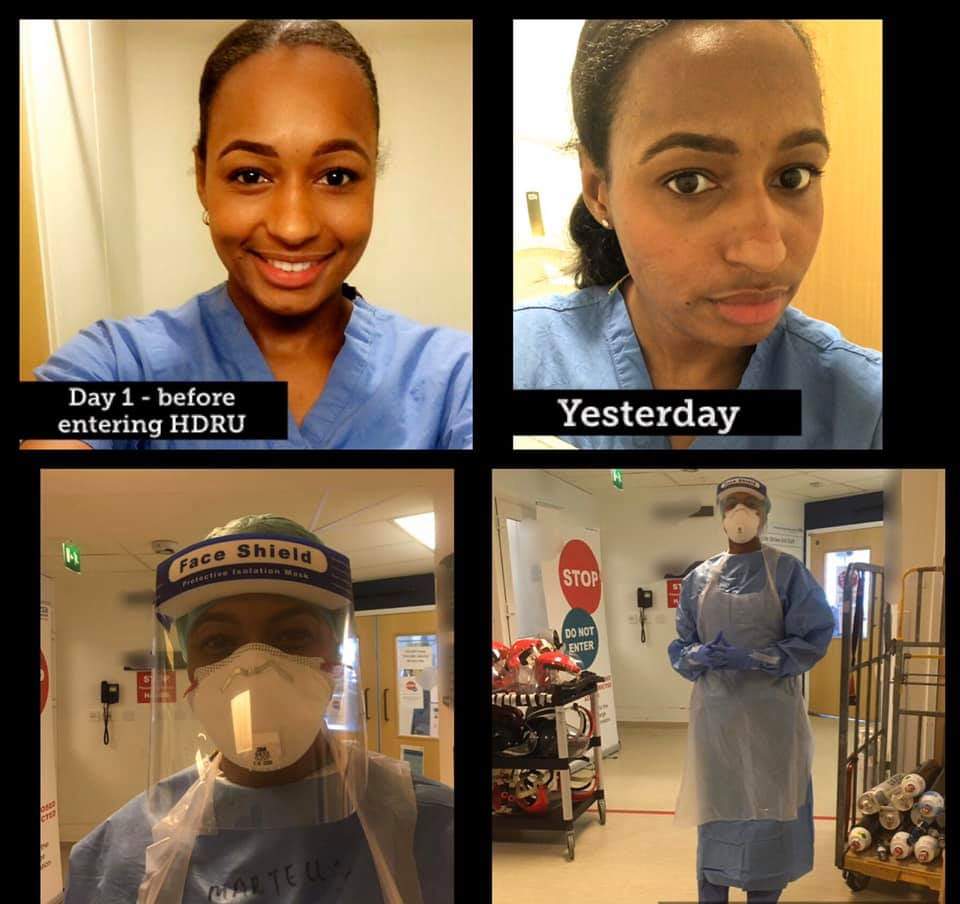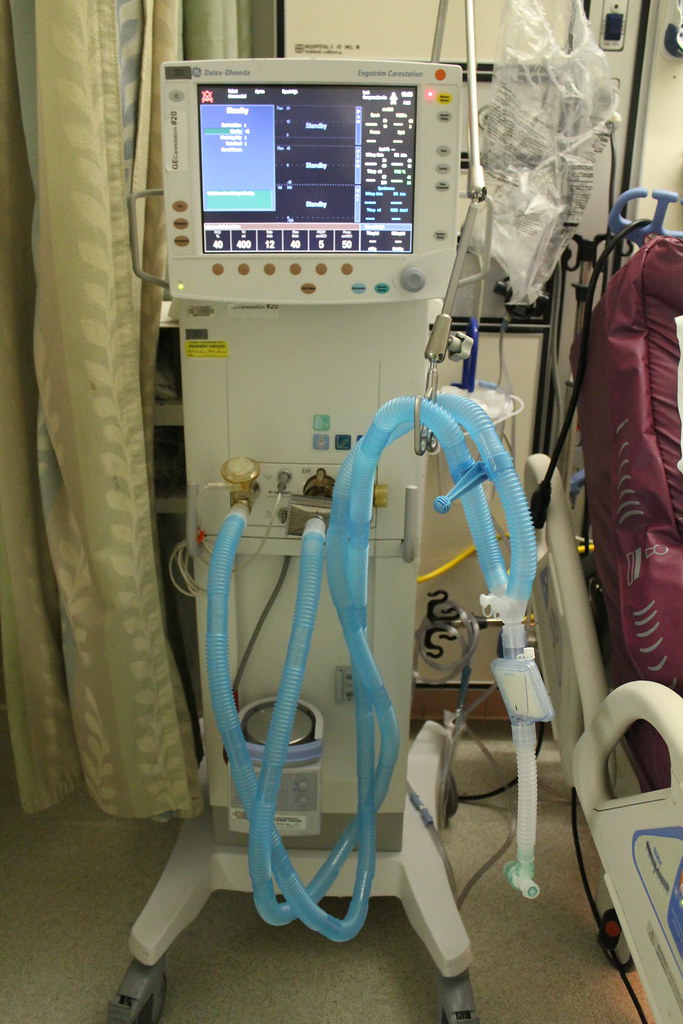The UK’s NHS staff are tasked with facing coronavirus on a daily basis. They have struggled with challenges such as the need and lack of PPE (personal protective equipment) in some cases, as well as risking their lives everyday. We here at TCS Network decided to speak with staff on the front line to find out how they are coping with the challenge.
COVID-19 has become a frightening and incomparable experience for the world – over 21,000 people have died in the UK alone. How does it feel to face something that most, understandably, want to hide from?
Martelle Henry is a nurse with a background in infectious diseases and respiratory infections. She now provides clinical and educational support in the High Dependency Respiratory Unit.
She said: “I don’t think that anything could have prepared me for the severity of illness in some cases, frequency of death or the joy experienced when a patient defies the odds and begins to turn around for the better.

There’s a real sense of peace (for me anyway!) and collegiality between all specialities, all job roles, all people. I’ve spent 12+ hours working alongside amazing, selfless staff, only identifiable by their eyes and name/role written on their gowns.”
The specialist unit that Martelle works on did not exist before COVID- 19, and she is proud to say that it puts patient and staff safety first; all staff in any patient-facing areas must wear PPE, regardless of whether they work in designated COVID- 19 areas or not. This is an essential preventative and protective policy, ensuring that the health of those caring for the ill and vulnerable are valued as well.
Martelle told TCS Network: “It’s during the saddest times that teamwork and collegiality has made all the difference. For example, we took it in turns to hold the phone to facilitate a video call between a patient and their children and grandchildren, who were able to say how much they love and appreciate their relative – as they were taking their last breath.”
Another key worker we spoke to, Naomi Coleman, has been a qualified midwife for seven years.
“Fortunately, we haven’t had any ladies who are seriously ill with the coronavirus, but it has changed the way that we practice. It can become a little bit impersonal – it’s a career where we are used to touching a lot but now we are having to find other ways to comfort women.”
Naomi’s daily activities have not changed per se, but she has been feeling the impact of social distancing within her work. I asked her how she felt in terms of being physically protected whilst serving the public.
She said: “We have protection – is it adequate? We don’t think so. A lot of staff are getting sores on their face from wearing masks all the time. There’s not enough money to pay for the proper equipment that we need – that’s what it boils down to. It’s not cheap, and the industry knows that, and they’ve given us protection to the best of their ability.
We’ve had a few staff members that have contracted this nasty virus – members of staff have passed away. Everyone has reacted differently to the situation at hand – I personally don’t feel completely uneasy due to my personal faith, but it is scary. As a team we make videos to uplift ourselves – to the outside world it can look like that’s all we do, as if we are not caring for the patients, but that’s not true. When we have a laugh, it releases the stress that’s on our shoulders and brings us together as a unit.”

Some healthcare students are practicing in medical environments during the pandemic – Grace’Anne Coleman is one of them – a student and aspiring community nurse.
She told TCS Network of her emotional highs and lows.
“In terms of working on the front line, I have had the experience of seeing people when they’re first admitted and discharged, but on the other hand, seeing people towards the end of their lives.
It’s quite an emotional experience to watch someone die without having their family with them. Often, the purpose of us caring for someone at the end of their life is to make sure that they have that full holistic care – family is often a part of that. It’s been a strange way to allow someone to die peacefully, but yet, there’s been a lack of peace. They can’t breathe.
There’s almost a vacant, awkardness within the hospital- there’s a lot going on and it’s difficult to learn and absorb as a student. We’re right down in the deep end and you want to help, but you don’t always know what to do sometimes.”
These are simply a glimpse into the everyday battle that NHS staff face, and they are doing a phenomenal job in light of their resources. COVID- 19 has taken many lives, but with professionals fighting for the public, a victory of some sort is certain.


